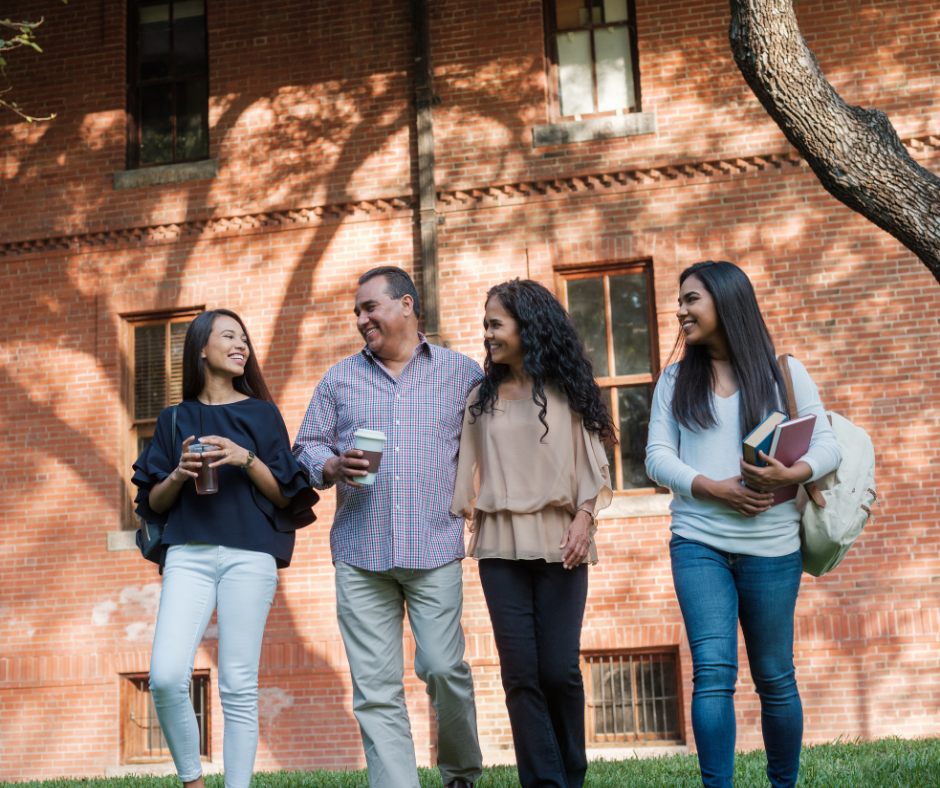A new trend in college admissions
The BIG C's: character, collaboration, and curiosity are now in vogue

Have you ever looked back over meeting notes and suddenly been struck by a clear theme running through the pages? That’s me as I review my notebook filled with information and observations from the recent Independent Educational Consultants Association conference.
Several of our educational sessions involved panel discussions with deans and directors of admission from colleges and universities across the US. They represented public and private institutions. Large and small colleges. STEM-focused and liberal arts. Highly selective and less so. Despite these schools’ unique qualities and individual institutional profiles, three themes loomed large across the board: Character, Collaboration, and Curiosity. I call them the Big Cs.
Character
There’s a movement growing that promotes the concept of “character” development in education. In a quick Google search, you’ll find pages of links to schools and associations that promote this idea of character development.
But what is “character?”
It’s a bit vague and its meaning depends on who is using the word. Basically, “character” in the context of college admissions refers to personal qualities like persistence, resilience, cooperation, kindness, generosity, and integrity.
As selective colleges continue experiencing surges in applications with far too many qualified applicants for the available seats, many are focusing on and making decisions based on these non-academic factors that make up “character.”
That’s not to say that academics aren’t important. They are. But once colleges screen for academic preparation and competitiveness, admissions officers are asking themselves these questions:
- What kind of community member will the student be?
- What character traits do they possess that would make them an asset to their school?
Students who can demonstrate strong character traits stand out in a crowded college application pool. But, here’s the catch. You can’t manufacture character. You can develop it, but you can’t fake it. As parents, teachers, coaches, mentors, and role models, we can help young people develop strong character.
Ironically, these strong character traits will also help them weather any disappointment if and when they don’t get the offer of admission they’ve longed for. Character is, in fact, most on display when life gets tough.
Collaboration
My favorite quote from the conference is, “Us and We versus I and Me.” Wow. I wrote that one down, circled it, and highlighted it.
For years, the message to students has been to aspire to be the shining star, the standout, the singularly accomplished. Maybe it’s because we went through the Covid experience. Maybe it’s because our country is more polarized than ever. Maybe it’s because of the increase in anxiety, depression, and overall difficult mental health challenges among our youth. Maybe it’s all of those factors and more.
Whatever the reason, colleges are putting a new emphasis on enrolling students who are good at collaborating with others. Colleges like to admit students who can work well in groups, can be inclusive leaders, and can listen and learn from others.
Building a future community is part of the job of the admissions team. That means admitting students who demonstrate the ability to collaborate with others both inside and outside the classroom.
Curiosity
Successful college applicants at selective colleges and universities need to show intellectual curiosity.
Admissions readers are looking for clues in applications that students are curious and eager to learn. That means going beyond what is required in school. Some colleges want to admit students who have developed a highly focused area of interest that they have pursued with depth. Other colleges want to admit students who have varied interests and who will eagerly take classes in multiple areas. And still, other colleges want to admit students who ask questions about everything, who will engage with and challenge each other as they study various subjects.
College is a place of learning that requires a lot of independence and motivation. Showing curiosity and eagerness is a must!
So how does your student show the Big Cs in an application?
- Activities - Think about how your child describes their activities. Are they a collaborator? Have they pursued activities that connect to their interests? Have they helped or served others in some way? Choose words that showcase these values. The Common Application limits students to 10 activities - make those activity descriptions count.
- Letters of recommendation - Is your student a good classroom group member? Have they helped or tutored other students? Do you ask thoughtful questions? Do they show eagerness and curiosity in the classroom? Do you ever go above and beyond the assignment? Have they talked to your teacher about your interests? The more that your teacher and counselor can provide examples of how your teen demonstrates these qualities, the stronger their letters will be. Keep in mind - most selective colleges require one or two letters of recommendation from teachers in core academic subjects, preferably from the junior year.
- Essays - Some students can naturally incorporate one or more of these themes into their essays. It’s important that your teen’s essay be authentic, so don’t force these themes into the essay. Often it’s in the college supplemental essays that they can highlight their character, collaboration, and curiosity. Common questions are: “why are you interested in the major you selected?” and “why are you interested in attending our college?”
- Interviews - Some colleges offer applicant interviews. Your student can use these conversations to elaborate in ways that show their character, ability to collaborate, and natural curiosity.
Remember that there is no single factor that leads to an admissions decision, and academic preparation always comes first. As your student goes through the high school years, be mindful of the Big C’s in college admission. And, when it comes time to apply, ask them to demonstrate aspects of Big C’s in their application.





